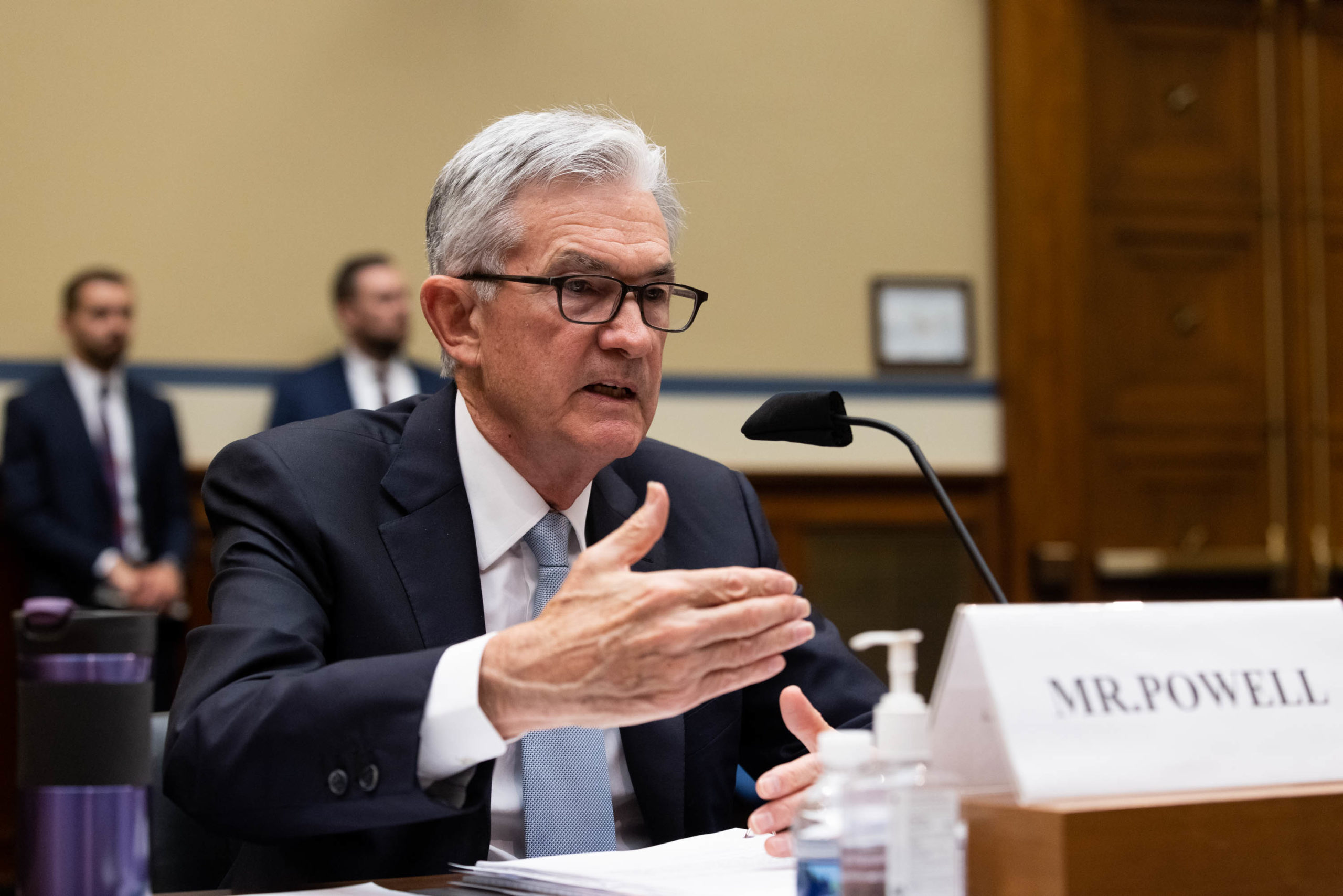OpenAI Under FTC Scrutiny: ChatGPT's Data Privacy Concerns

Table of Contents
FTC's Concerns Regarding ChatGPT's Data Handling
The FTC, responsible for enforcing US consumer protection laws, including those related to data privacy, has the authority to investigate companies suspected of violating these laws. The commission's investigation into OpenAI's data handling practices stems from allegations of potential violations concerning the collection, use, and protection of user data. While specific details of the allegations remain largely undisclosed, the investigation suggests serious concerns about OpenAI's compliance with existing data privacy regulations.
Potential legal consequences for OpenAI are significant. The FTC could impose substantial fines, demand changes to OpenAI's data handling practices, and even issue cease-and-desist orders. These actions could impact OpenAI's operations and future development, setting a critical precedent for the entire AI industry.
- Improper Data Collection: Allegations may involve the collection of data beyond what is necessary or disclosed to users.
- Insufficient Data Security: Concerns might exist about vulnerabilities in OpenAI's systems that could expose user data to unauthorized access or breaches.
- Lack of Transparency: The investigation may focus on OpenAI's lack of transparency regarding its data usage practices, failing to adequately inform users about how their data is processed and used.
ChatGPT's Data Collection Practices and User Privacy
ChatGPT collects data from various sources to enhance its capabilities. This includes:
- User Inputs: Every conversation, prompt, and response entered into ChatGPT contributes to its training data.
- Browsing History (if integrated): Depending on the platform used, ChatGPT's functionality might involve access to browsing history, although this is often not the case for general standalone usage.
- IP Addresses: Like most online services, ChatGPT logs IP addresses to track usage and potentially for security purposes.
- Personal Identifiers: While OpenAI aims to anonymize data, the potential for inadvertently collecting personally identifiable information remains a concern.
- Conversation History: The content of user conversations is stored and potentially used to improve the model.
The lack of complete transparency around how this data is used and the potential for biases embedded in the data used to train ChatGPT are key aspects of the FTC's investigation. OpenAI’s data privacy policy is under scrutiny to determine if it accurately reflects its data handling practices.
The Implications of Generative AI and Data Privacy
Generative AI models like ChatGPT present unique data privacy challenges. Their ability to learn from vast datasets raises concerns about:
- Misuse of Collected Data: The potential for misuse of personal data through unauthorized access or malicious use remains a high risk in AI systems that train on vast amounts of user data.
- Bias Amplification: If the training data contains biases, ChatGPT could perpetuate and amplify those biases in its responses, potentially leading to unfair or discriminatory outcomes.
- Data Breaches: A data breach affecting OpenAI's systems could expose sensitive user information to malicious actors. This could lead to identity theft, financial fraud, and reputational damage for affected users.
The ethical implications of large language models and their impact on data privacy are increasingly being debated among researchers, policymakers, and the public. Balancing innovation with the protection of individual rights is a central challenge.
What Users Can Do to Protect Their Data While Using ChatGPT
While OpenAI is responsible for implementing strong data protection measures, users can also take steps to minimize their privacy risks:
- Limit Personal Information: Avoid sharing sensitive personal information in your prompts and conversations.
- Review Privacy Settings: Familiarize yourself with OpenAI's privacy settings and adjust them to your comfort level, although options might be limited at present.
- Read the Terms of Service: Understand OpenAI's data collection and usage policies before using ChatGPT.
- Use VPNs: A VPN can help mask your IP address and encrypt your internet traffic. Note that this won't necessarily protect against data collection by OpenAI itself.
- Be Aware of Data Minimization: Only use the necessary information needed for prompt completion to reduce the potential of personal data collection.
By remaining informed and taking these precautions, users can contribute to a safer online environment in the age of generative AI. Advocate for stronger data protection laws, holding companies accountable for their data practices.
Conclusion: Navigating the Future of OpenAI and ChatGPT Data Privacy
The FTC's investigation into OpenAI highlights the critical need for strong data privacy protections in the rapidly evolving landscape of generative AI. The concerns surrounding ChatGPT's data collection, use, and security underscore the importance of transparency and accountability from AI companies. The implications extend beyond OpenAI, impacting the entire AI industry and setting a precedent for future regulations. Stay updated on the OpenAI and ChatGPT data privacy debate, and demand stronger data protection measures from AI companies. The future of AI hinges on a balance between innovation and the responsible handling of user data.

Featured Posts
-
 A Statistical Look At Shedeur Sanders And His Nfl Potential Under Deion Sanders
Apr 26, 2025
A Statistical Look At Shedeur Sanders And His Nfl Potential Under Deion Sanders
Apr 26, 2025 -
 Getting My Nintendo Switch 2 Preorder At Game Stop The Waiting Game
Apr 26, 2025
Getting My Nintendo Switch 2 Preorder At Game Stop The Waiting Game
Apr 26, 2025 -
 Land Your Dream Private Credit Job 5 Key Dos And Don Ts To Follow
Apr 26, 2025
Land Your Dream Private Credit Job 5 Key Dos And Don Ts To Follow
Apr 26, 2025 -
 T Mobile Penalized 16 Million For Data Breaches Spanning Three Years
Apr 26, 2025
T Mobile Penalized 16 Million For Data Breaches Spanning Three Years
Apr 26, 2025 -
 A Tough Road Ahead The Next Federal Reserve Chairs Inheritance From The Trump Administration
Apr 26, 2025
A Tough Road Ahead The Next Federal Reserve Chairs Inheritance From The Trump Administration
Apr 26, 2025
Latest Posts
-
 Grand National 2025 Runners Your Aintree Race Guide
Apr 27, 2025
Grand National 2025 Runners Your Aintree Race Guide
Apr 27, 2025 -
 New Whitecaps Stadium Pne Fairgrounds Under Consideration
Apr 27, 2025
New Whitecaps Stadium Pne Fairgrounds Under Consideration
Apr 27, 2025 -
 Pne Groups German Expansion Permits Granted For Two Wind Farms And A Solar Plant
Apr 27, 2025
Pne Groups German Expansion Permits Granted For Two Wind Farms And A Solar Plant
Apr 27, 2025 -
 German Renewables Expansion Pne Group Receives Permits For Wind And Pv Projects
Apr 27, 2025
German Renewables Expansion Pne Group Receives Permits For Wind And Pv Projects
Apr 27, 2025 -
 Amphibien Und Reptilien In Thueringen Ein Umfassender Atlas
Apr 27, 2025
Amphibien Und Reptilien In Thueringen Ein Umfassender Atlas
Apr 27, 2025
